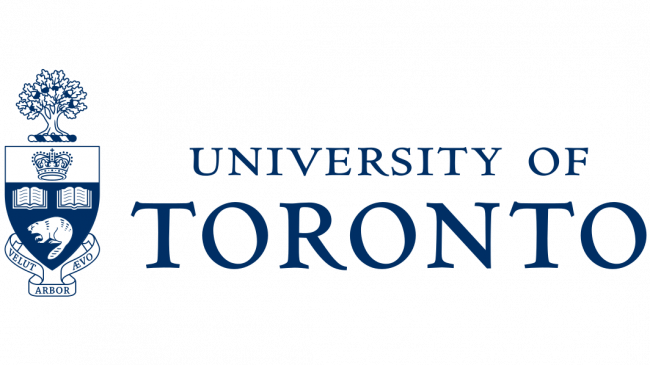The University of Toronto’s National Scholarship is not just another line on a student’s résumé. It is one of the most competitive and respected undergraduate awards in Canada, designed to identify and support the brightest minds in the country. This scholarship has a long history of recognizing students who go beyond the usual expectations of academic excellence. The university seeks individuals who combine stellar grades with creativity, innovation, and a strong sense of community responsibility.
Key Takeaways
What Makes the National Scholarship So Prestigious?
What makes it so prestigious is not only the financial support it provides but also the recognition it carries. Being named a National Scholar places you among a very select group of students who represent the future leaders of Canada. It signals to universities, employers, and even international institutions that you are someone capable of making an impact far beyond the classroom. For many recipients, the award opens doors to research opportunities, mentorship, and a lifelong network of achievers.
Who Is Eligible to Apply for the 2026 National Scholarship?
Before dreaming of the recognition, students need to know who actually qualifies to apply. The scholarship is open only to Canadian citizens or permanent residents currently in their final year of high school. That means if you are an international student or already enrolled in university, you will not be eligible. The program is designed specifically to identify top Canadian secondary school students who are preparing to begin their undergraduate studies at U of T in 2026.
Also Read: Skilled Workers Wanted: How to Get PR Through West Kootenay RNIP
Another crucial detail is the nomination process. Unlike many scholarships, where you apply independently, the National Scholarship requires that your school nominate you. Each Canadian high school can only put forward one student for consideration, which raises the stakes considerably. This process ensures that nominees are already recognized within their school community as top achievers who embody leadership, creativity, and academic promise.
What Does the Scholarship Cover for Winners?
The financial benefits of the National Scholarship are among the most generous in Canada. Winners, typically around 15 students nationwide, receive a comprehensive package covering full tuition fees, residence costs, and incidental fees for up to four years of undergraduate study. In other words, the award essentially makes a University of Toronto education free of charge while also taking care of living arrangements.

Even those who do not make it to the final stage as National Scholars are not left behind. Runners-up are awarded Arbor Scholarships, which provide a smaller but still valuable financial contribution. While the Arbor Award does not fully cover tuition and residence, it does reduce the burden of costs during the first year and continues to provide support in subsequent years. Both levels of awards reflect the university’s commitment to recognizing excellence across the board, ensuring that deserving students receive support even if they fall just short of the top award.
How to Prepare a Strong Application
Winning the National Scholarship requires more than just high grades, although academic excellence is the foundation. Applicants should focus on demonstrating creativity, innovation, and leadership in their submissions. The scholarship committee wants to see how you stand out, whether through original research, creative projects, entrepreneurial ventures, or initiatives that make a real difference in your community.
Also Read: Canada to Invite 10,000 Sponsors for Parents and Grandparents in 2025
It is also crucial to prepare well-rounded application materials. That means more than listing achievements; it requires weaving them into a story that highlights your growth, challenges you have overcome, and the impact you have made. Strong evidence of leadership, whether as a student council leader, volunteer organizer, or founder of a unique initiative, can significantly enhance your application. Remember, this is not about being perfect but about showing authenticity, purpose, and the potential to contribute meaningfully to society.
The Role of School Nominations and Deadlines You Can’t Miss
Because schools nominate candidates, communication with your teachers and guidance counsellors becomes essential. If you believe you are a strong contender, make your interest known early so your school can support your nomination. Some schools may even hold internal competitions or evaluations to determine who to nominate, so waiting until the last minute is a risky strategy.
The timeline for the 2026 scholarship cycle will likely follow previous years: applications typically open in September and close around mid-October. After submission, shortlisted candidates are invited for further evaluation, which may include interviews or additional documentation. Required documents often include transcripts, a personal essay, and letters of recommendation, all of which should be prepared with care and attention to detail. Missing the nomination or application deadlines eliminates your chances, no matter how outstanding your record may be.
Tips to Stand Out Among Canada’s Brightest Students
Competition for the National Scholarship is fierce, with nominees representing the best students from schools across Canada. To stand out, your application must highlight what makes you unique. A strong personal essay is your chance to show the committee not just what you have accomplished but who you are. It should reflect your values, passions, and aspirations while connecting them to the broader impact you hope to make at the University of Toronto and beyond.

Equally important are your recommendation letters. Choose referees who know you well and can speak about your character, achievements, and potential in specific terms rather than generic praise. A letter that illustrates how you took initiative in a challenging situation or contributed meaningfully to your school or community carries far more weight than one filled with clichés. Finally, highlight achievements that demonstrate innovation, whether you created a community project, conducted unique research, or showed resilience in overcoming challenges. These elements help build a memorable application that resonates with the selection committee.
Conclusion
The University of Toronto’s National Scholarship is more than just financial aid; it is a life-changing recognition of potential, creativity, and leadership. With only a handful of winners each year, the competition is intense, but the opportunity is equally rewarding. By focusing on academic excellence, community engagement, and authentic storytelling, students can craft applications that stand out. For those willing to put in the effort, the 2026 National Scholarship offers not only the chance to study at one of Canada’s leading universities without financial strain but also the recognition of being part of an elite group shaping the future.





